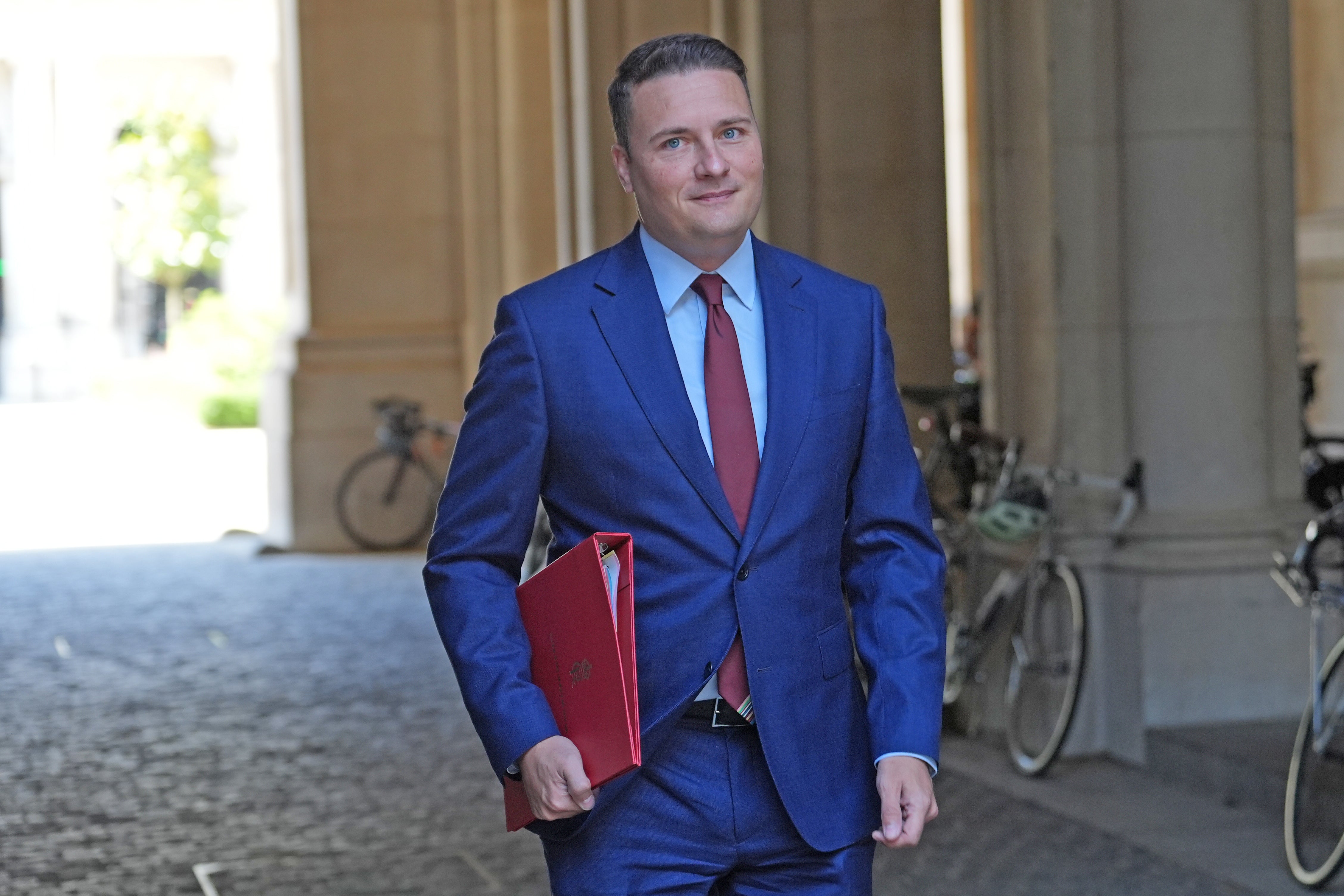
The public are being urged to continue seeking NHS care despite a looming five-day strike by resident doctors, the 12th such industrial action since March 2023.
The walkout is set to begin at 7am on Friday, with thousands of resident doctors expected to participate.
NHS England has stated that hospitals and local teams have been preparing extensively for the industrial action, implementing plans to “minimise disruption to patient care and ensure life-saving care continues”.
Sir Jim Mackey, the new head of NHS England, has urged hospital leaders to maintain routine operations and appointments where possible, cancelling only if patient safety is at risk.
However, the British Medical Association (BMA) has countered this, asserting that NHS England’s strategy to proceed with business as usual during the strike poses a risk to patients.
Despite the strike, GP surgeries will operate as normal, and urgent care services and A&E departments will remain available for those in need, according to NHS England.
The public is advised to use 111 online as the initial point of contact for urgent but non-life-threatening health concerns.
Professor Meghana Pandit, NHS England national medical director, said: “There is no doubt this industrial action will take a toll on patients and NHS staff, and it is disappointing it is going ahead.
“While it will mean some appointments won’t be able to go ahead as planned, we are doing all we can to limit this, and patients should continue to use NHS services in the usual way.
“The public should dial 999 in an emergency, and otherwise use 111 online, your local pharmacist or GP, and patients should attend NHS appointments unless told otherwise.”
BMA council chairman Dr Tom Dolphin said: “It’s worrying that NHS England appears intent on telling hospitals to continue providing non-urgent planned care on strike days, despite our warnings that this will leave staffing levels unsafe across the board.
“At best this will leave hospital managers and senior doctors confused over what they should be planning for this week, resulting in last-minute cancellations, and at worst puts patients at risk in both emergency and planned care settings.
“Senior doctors cannot simultaneously cover for striking resident doctors in emergency departments, while also continuing routine work, and NHS England is being irresponsible by suggesting they can do both.
“The priority on strike days must be emergency and urgent care.”
Strikes by resident doctors last June led to 61,989 inpatient and outpatient appointments being rescheduled.
Since the end of 2022, almost 1.5 million appointments have been rescheduled as a result of industrial action.
The BMA said on Tuesday that talks with the Government aimed at averting the strike had collapsed over the core issue of pay.

Dr Melissa Ryan and Dr Ross Nieuwoudt, co-chairs of the BMA’s resident doctors committee, said in a statement: “We have always said that no doctor wants to strike and all it would take to avoid it is a credible path to pay restoration offered by the Government.
“We came to talks in good faith, keen to explore real solutions to the problems facing resident doctors today.
“Unfortunately, we did not receive an offer that would meet the scale of those challenges.
“While we were happy to discuss non-pay issues that affect doctors’ finances we have always been upfront that this is at its core a pay dispute.”
Health Secretary Wes Streeting said “we cannot move on pay after a 28.9 per cent pay rise” but added that the Government was looking at ways to improve resident doctors’ working lives.
He said there was an opportunity for the union “to work with us on a range of options that would have made a real difference to resident doctors’ working conditions and created extra roles to deal with the bottlenecks that hold back their career progression.
“Instead, they have recklessly and needlessly opted for strike action.”
He added: “All of my attention will be now on averting harm to patients and supporting NHS staff at work.
“After a 28.9 per cent pay hike in the last three years and the highest pay rise in the public sector two years in a row, strike action is completely unjustified, completely unprecedented in the history of British trade unionism and shows a complete disdain for patients and the wider recovery of the NHS.“
It came after research suggested public support for the strike is waning.
A YouGov poll showed about half (52 per cent) of people in the UK “somewhat oppose” (20 per cent) or “strongly oppose” (32 per cent) resident doctors going on strike over pay.
A third (34 per cent) of the 4,954 adults surveyed either “somewhat support” (23 per cent) or “strongly support” (11 per cent) doctor strikes.
YouGov said the proportion supporting the strike over pay has dropped five points since it last asked the question in May, when 48 per cent opposed the strikes and 39 per cent supported them.
Daniel Elkeles, chief executive of NHS Providers, said the decision for strikes to go ahead “is a crushing blow for patients and for the NHS”.
Resident doctors are qualified doctors in clinical training.
They have completed a medical degree and can have up to nine years of working experience as a hospital doctor, depending on their specialty, or up to five years of working and gaining experience to become a GP.




